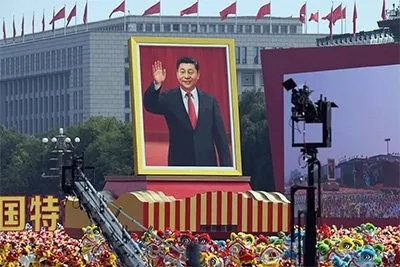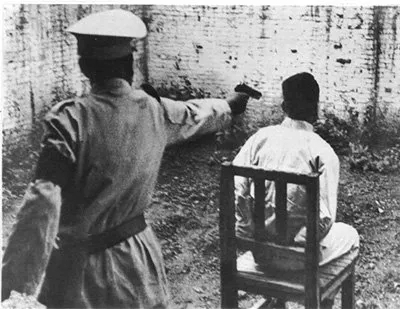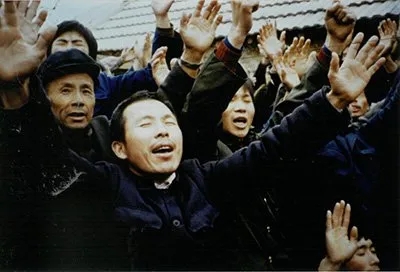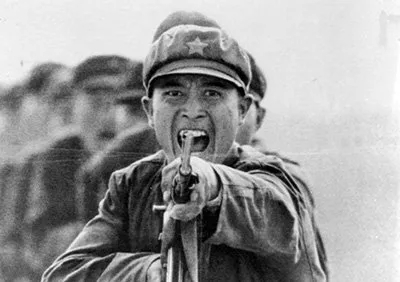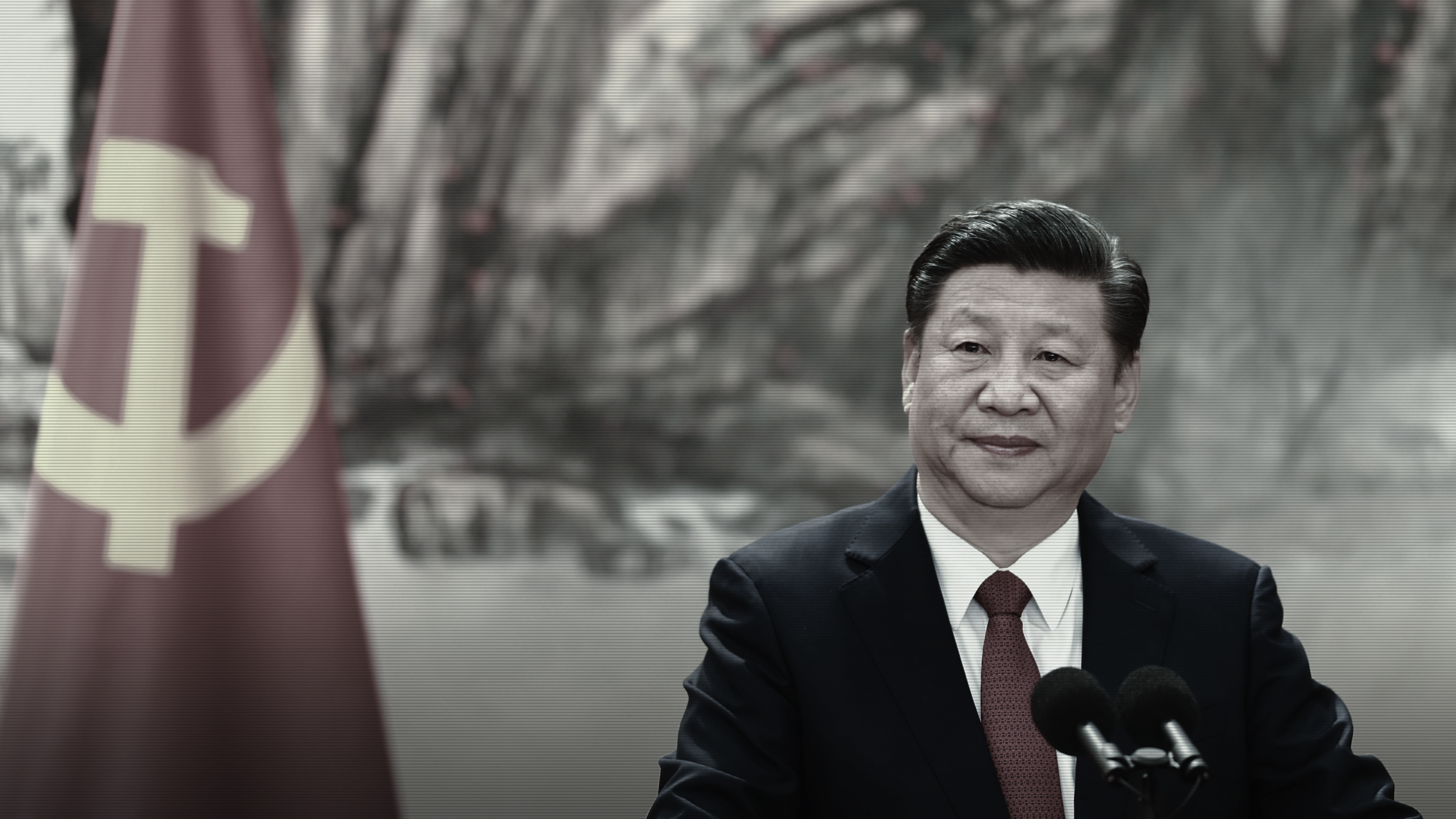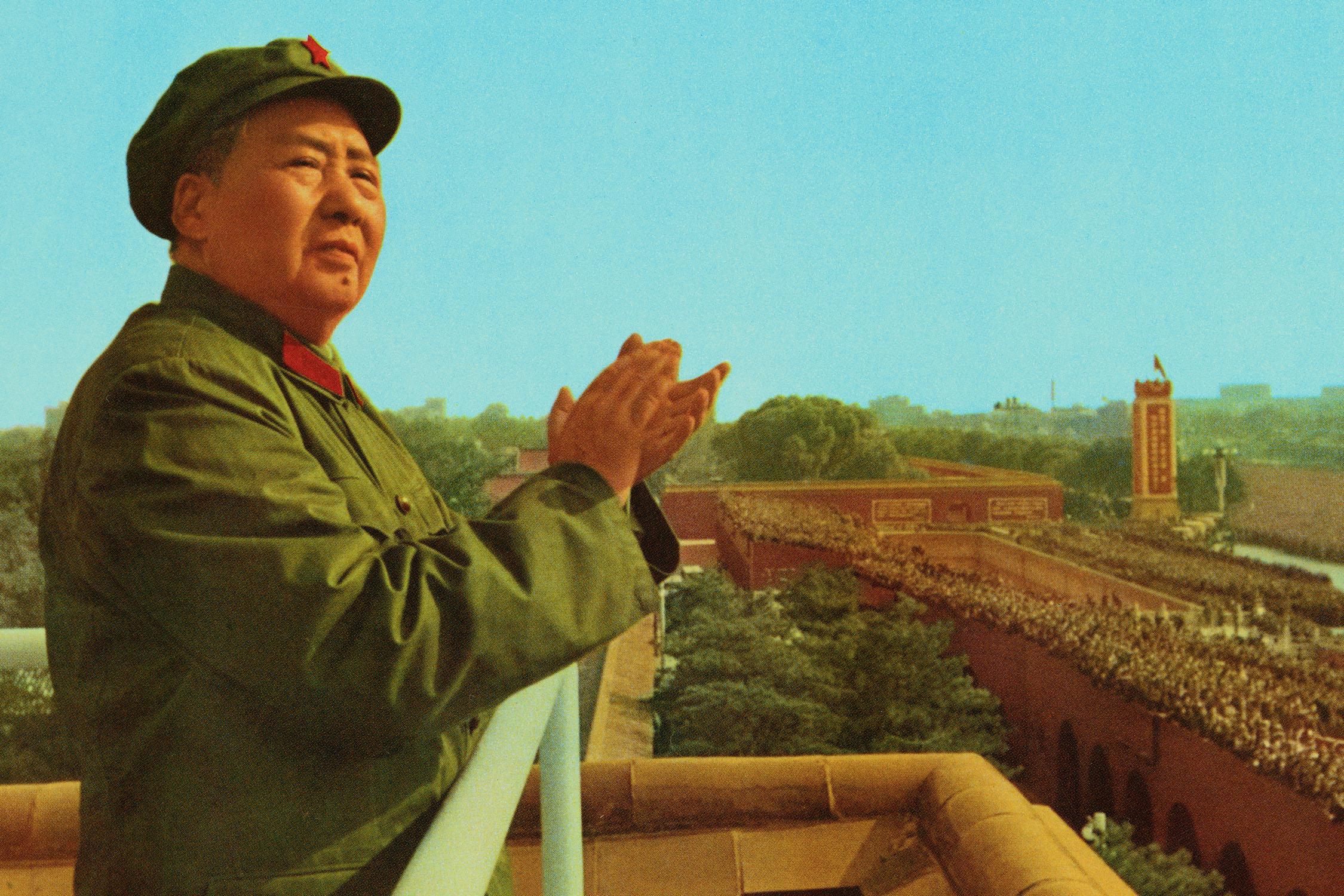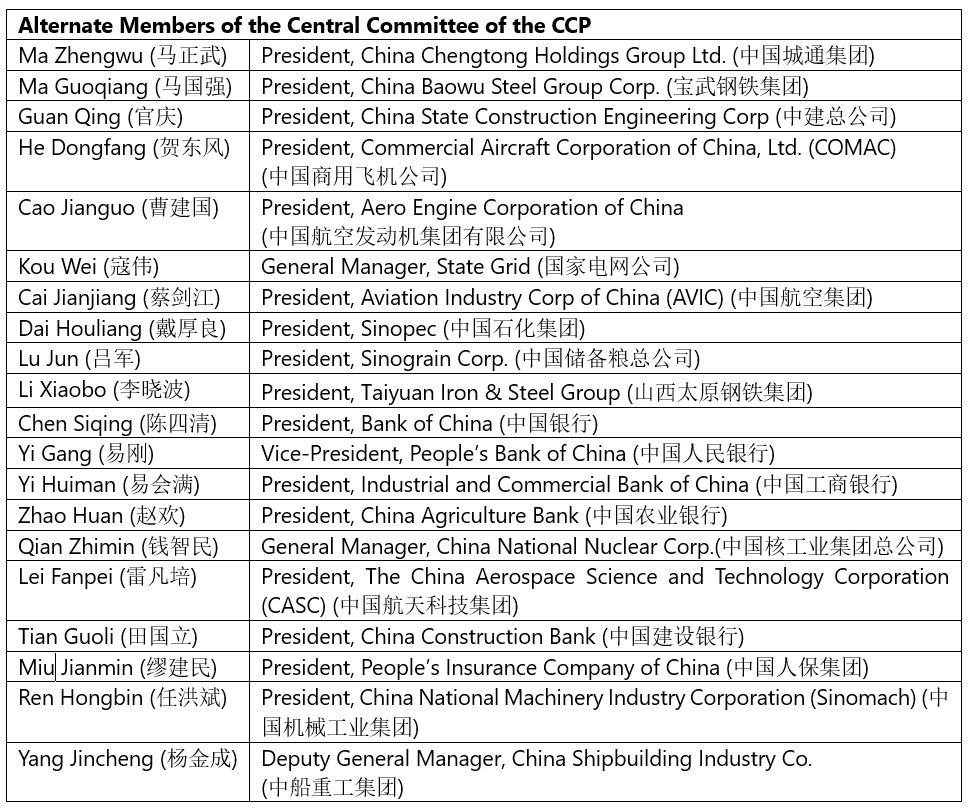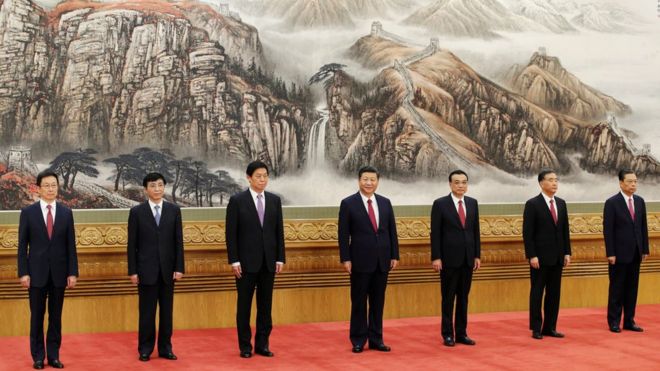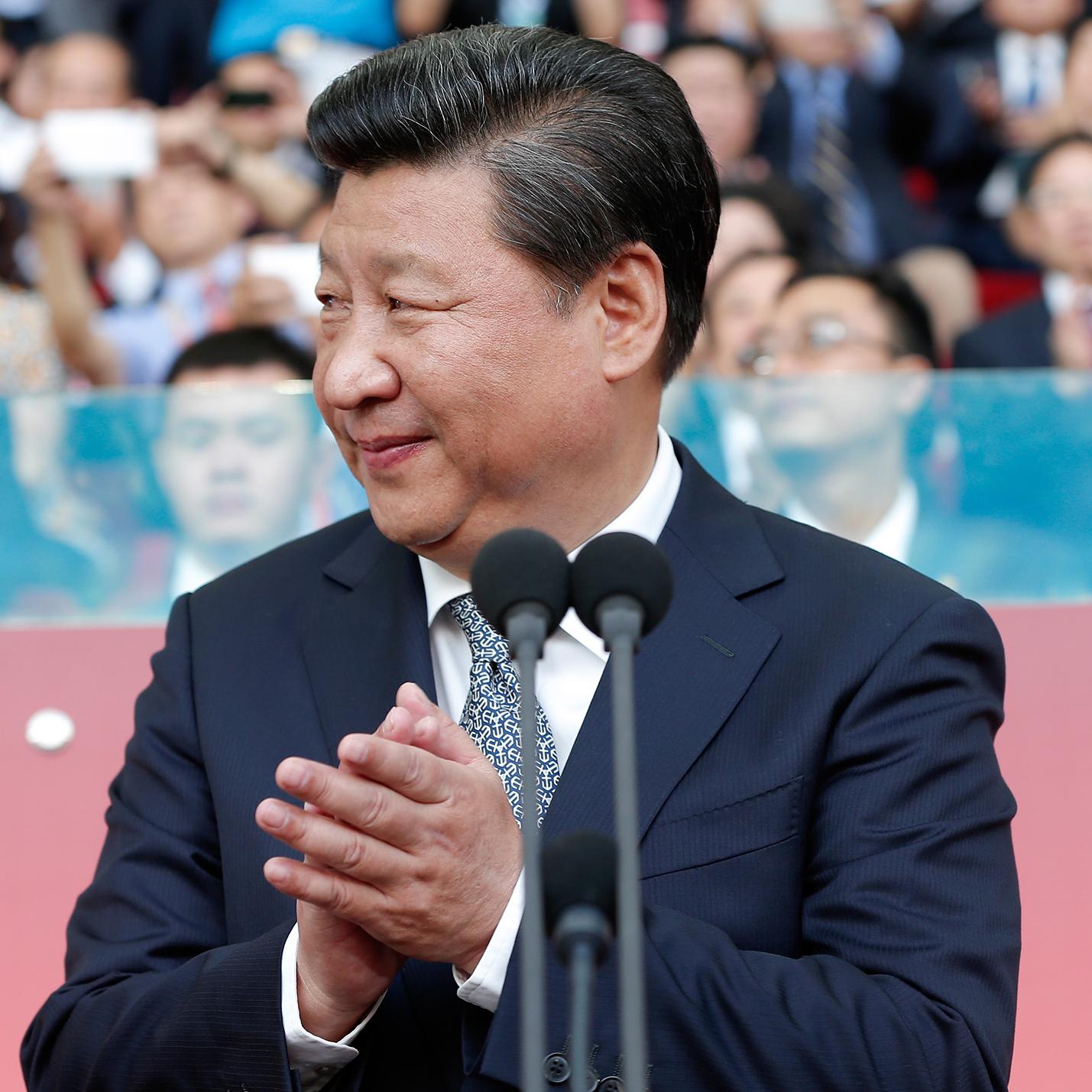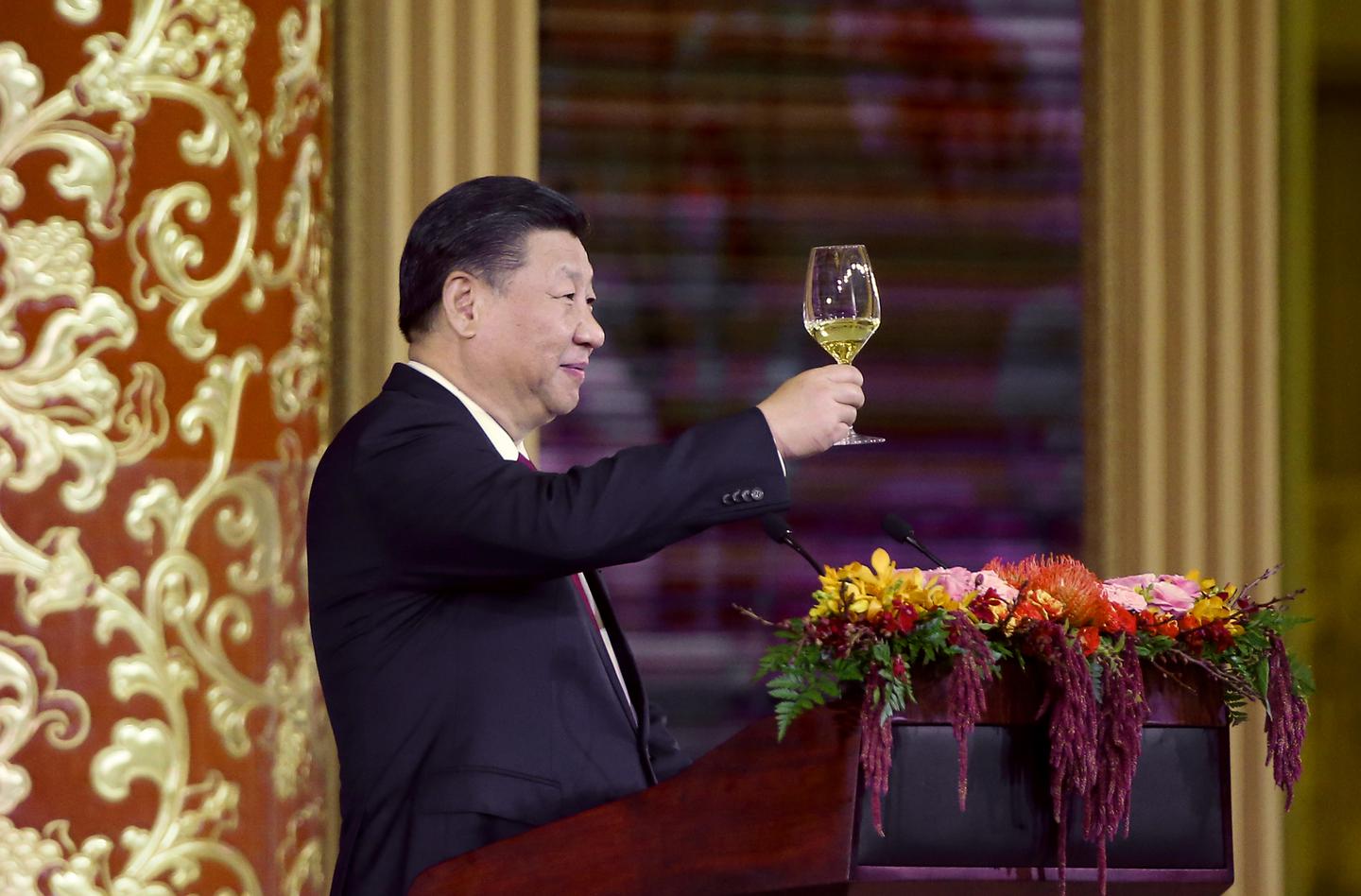Then Jesus said to his disciples, “Whoever wants to be my disciple must deny themselves and take up their cross and follow me. For whoever wants to save their life will lose it, but whoever loses their life for me will find it. What good will it be for someone to gain the whole world, yet forfeit their soul? Or what can anyone give in exchange for their soul?” (Matthew 16:24-26)
Many people have asked us in recent years to share more about the wave of rabid persecution sweeping China. They are genuinely confused about why it is happening and they have requested we share the reasons behind the current situation. Normally, we prefer to share encouraging testimonies with you about the great things God is doing in China and throughout Asia. Now, however, we feel it is time to also report on the reality of the horrific situation that is unfolding in China.
For several years we have warned about the massive increase of persecution in China, and that many Chinese church leaders have described the situation as even worse than during the evil events of the Cultural Revolution (1966-1976).
Recently, the Chinese Communist Party celebrated the 100th anniversary of its founding. In this and future newsletters, we will take a look at some of their “achievements,” and we will reveal who we believe is the Great Hero of the last century in China.
It is not our desire or intention to become political statesmen. We exist to serve the Church in Asia, but sometimes in order to give a clear view of what is happening to God’s people, we have to share the bigger picture of what is happening in the country, as it affects the Gospel.
The problem is that in China, everything is framed in political terms by the Communist Party. They see everything as a massive ideological struggle. If someone doesn’t obey them, they are an enemy of the state. If a foreign Christian wants to reach people for Jesus, they are considered spies and imperialists; and over the years tens of thousands of pastors who refused to bow their knee to the atheistic system have been imprisoned and tortured as counter-revolutionaries.
The China We Love. It has been said that the 21st century will be China’s century; the time when they will rise up to lead the world, replacing Western powers as the dominant force in global economics, culture, and military might.
We want to start by stating that we love China and the Chinese people! They have so many wonderful God-given gifts and natural talents, and have been kind and hospitable to us for over three decades. The great Chinese civilization has changed the world in countless ways, with just four of their inventions being the compass, paper, printing, and gunpowder.
If the Chinese people themselves would rise to global prominence in the coming decades, we would not be upset. Their sharp minds, strong work ethic, and ability to solve problems is extraordinary.
But there is a major problem. One hundred years ago, in a leafy suburb of Shanghai, a small group of just 12 men (representing 57 members nationwide) met together to discuss establishing a new political party in China. Among them was a balding, round-faced peasant named Mao Zedong, from rural Hunan Province.
A Room full of Fools. At the inaugural meeting, the group discussed various philosophies and were especially attracted to the teachings of a German man named Karl Marx, who had died nearly 40 years earlier. His father, Heinrich, was a liberal Christian who had Karl and his siblings baptized in the state Evangelical Church of Prussia.
Marx had written a Communist manifesto to outline his philosophies. One of the foundation stones of his belief was that “religion is the opium of the people.” He hated religion, especially Christianity, and saw it as an obstacle to achieving the societal changes he wished to bring about.
The founding members of the Chinese Communist Party adopted Marx’s teachings as the bedrock of their new system. There would be no room for religion in their new China. In so doing, they set themselves irrevocably against God, whose Word declares: “The fool says in his heart, There is no God. They are corrupt, their deeds are vile; there is no one who does good.” (Psalm 14:1).
China had been religious for thousands of years. For countless generations they worshipped the Creator God in their annual sacrifices, before idolatry brought corruption to their society. In 1921, for the first time in Chinese history, a small seed of atheism took root, and since that time the seed has grown to produce a bitter harvest of brutal persecution, death and suffering for untold millions of people.
By effectively declaring war on God, a battle ensued between the Communists and the kingdom of the Living God, whose ways cannot be thwarted. There is ultimately only ever one winner when foolish people set themselves against the King of Kings and Lord of Lords!
A Century of Slaughter. The legacy of the Chinese Communist Party over the past hundred years has been one of killing, stealing and destroying. It has largely been a century of slaughter. Even before the Communists seized full control of China in 1949, hundreds of thousands of people had been butchered in Mao’s pursuit of revolution. Christians were particularly targeted and eliminated, if the Communists thought they were in the way of their destiny to rule the country with an iron fist.
Our education into the horrors of China’s recent past began 33 years ago in south China, when we sat on the banks of the Pearl River, which is half a mile wide in many places. A local man told how, during the Cultural Revolution which had ended little more than a decade earlier, the entire river at that place turned red from the blood and entrails of people killed by the Communist Red Guards, who chopped bodies to pieces before the remains were flung into the river. Over the ensuing years, interrogations by the Chinese police for sharing the Gospel gave us a tiny glimpse into what our Chinese brothers and sisters have had to endure for decades. There is a very dark spiritual side behind all such encounters.
The political scientist Rudolph Rummel has estimated that the Communists were responsible for 77 million deaths in China. Others have estimated “only” in the range of 40 to 60 million. Since Mao’s death, a further 400 million precious lives have been slaughtered by the Chinese Communist Party, either directly through forced abortions, or indirectly through the disastrous “one-child” policy, which China is just now beginning to reap the dire consequences of. The death count doesn’t include the tens of millions who starved to death in China due to famines resulting from foolish government policies.
And no, at this stage these figures do not include the millions of deaths currently occurring around the world from the Covid pandemic, which happened to start just down the road from the only Biological Weapons Laboratory in China. You will need to make up your own mind about the origins of Covid, although the Communist Party is determined to never let any evidence escape out of Wuhan, and some of the key scientists who could have spoken out have disappeared and their voices are heard no more.
If you think the Chinese Communist Party’s track record of death and destruction is not necessarily evidence of their involvement in the pandemic, it may be worth knowing that the People’s Liberation Army General, Qiao Liang, wrote a book in 2015 about new biological and chemical weapons. One of the ways he predicted China could achieve world domination was by releasing a virus that would destroy the economies of other nations. Other top leaders have echoed similar sentiments.
The War Against the Church. In the late 1950s, a severe wave of persecution swept over the Church in China, as thousands of pastors and church workers were arrested, killed, or sent to prison labor camps for many years. The situation grew even worse during the 1960s and 1970s. Whenever an individual, a group, or a nation despises Jesus Christ and hardens their conscience against anything godly, their sins fester and grow, and their behavior becomes increasingly vile.
When all fear of God or acknowledgement of His existence is rejected, human life becomes worthless. All that matters to them is controlling the masses and holding on to power, even if they must crush their own people beneath tanks and mow them down with machine guns like in Beijing in 1989. These leaders sleep without a troubled conscience, which has been “Such teachings come through hypocritical liars, whose consciences have been seared as with a hot iron.” (1 Timothy 4:2). All death and suffering inflicted on the masses is seen as collateral damage in the great vision of establishing their God-hating socialist utopia.
Because they have erased God from their conscience, they do not have the slightest fear that they will one day be held to account by God, or that they are commanded to govern people with fairness and equity. Slaughtering tens of millions of babies either inside or outside the womb through forced abortions and other evil policies doesn’t register the slightest concern for them.
As persecution reached fever-pitch during Mao’s awful Cultural Revolution, Christians around the world wondered if there would be any believers left inside China should the doors of the nation ever reopen. Indeed, when foreign diplomats were allowed to visit China, one of them asked Jiang Qing (Mao’s fourth wife) if there were any Christians left. She arrogantly replied: “Christianity in China has been confined to the history section of the museum.”
In the past 40 years, Communist Party leaders have avoided publicly revealing their war against Christians, although occasionally they have let it slip, such as when President Jiang Zemin said in 1995: “We are engaged in a secret struggle against the Church.”
The current leader of China, Xi Jinping, appears determined to finish the job that Mao failed to do, by eliminating Christianity from China once and for all. Now armed with invasive technology and weapons that Mao could never have dreamed of, the Body of Christ is being attacked in new and evil ways. Little news of this will ever be reported, because the government has systematically expelled most foreigners from China, leaving few ways to report events on the ground.
When he came to power, many people around the world mistakenly thought Xi looked like a nice, charming man. Beneath the cuddly veneer, however, his true intentions soon surfaced. In 2016 he warned Communist Party members that they must be “unyielding Marxist atheists,” and in 2018 he encouraged the nation to “grasp the power of the truth of Marxism.”
To celebrate 100 years of the Chinese Communist Party, the world might have expected Xi Jinping to reach out in some kind of conciliatory way. Instead, the hardliner militant atheist, and President-for-life, used his speech to issue this threat to the world: “The Chinese people will never allow foreign forces to bully, oppress or enslave us. Whoever nurses delusions of doing that will crack their heads and spill blood on a Great Wall of steel built from the flesh and blood of 1.4 billion Chinese.”
Again, we wish to make a clear distinction between the normal Chinese people, who we love and respect, and the Communist Party, which seems hell-bent on world domination at any cost, and believes society can only progress through the “glories of militant atheism.” If the 21st century is to be “China’s Century” with the Communist Party at the helm, then may God have mercy on the world.
The true hero of 100 years of Communism in China is not Mao, Xi, or any other God-hating hardliner atheist. The Great Hero has been none other than the Lord Jesus Christ! When the Communists took control of China in 1949, most experts estimate there were about 750,000 Christians in the entire country — a tiny number in such a vast sea of humanity. The children of God felt like the Israelites when they were overwhelmed by a massive Aramean army: “When the Israelites were also mustered and given provisions, they marched out to meet them. The Israelites camped opposite them like two small flocks of goats, while the Arameans covered the countryside.” (1 Kings 20:27).
The Communists declared war on God but found they could not touch Him, so they declared war on His followers instead. Bibles were burned, church buildings demolished, and the entire leadership of the Body of Christ was rounded up, tortured, and sent to die in remote prison labor camps. In the eyes of the Communist Party, Christianity had indeed been consigned to history.
The Chinese Communist Party had viciously crushed the Church for decades, removing all signs of its existence. At best, it remained just a tiny seed that would never have any influence on society again. But there was One who had other ideas! As He has done repeatedly throughout history, the Lord Jesus Christ decided to interrupt the plans of evil men. After allowing His children to go through a season of intense purification, His truth again triumphed, for the Lord had taught:
“Very truly I tell you, unless a kernel of wheat falls to the ground and dies, it remains only a single seed. But if it dies, it produces many seeds. Anyone who loves their life will lose it, while anyone who hates their life in this world will keep it for eternal life. Whoever serves me must follow me; and where I am, my servant also will be. My Father will honor the one who serves me. Now my soul is troubled, and what shall I say? ‘Father, save me from this hour’? No, it was for this very reason I came to this hour.” (John 12:24-27).
Hallelujah! The Living God breathed His life onto the incorruptible seed of His people in China, and after being underground for years, they finally poked through the soil again, enjoying the warmth of the sun’s rays!
In response to this shocking development, the Communists have tried to crush God’s people repeatedly over the past three decades, but their failure to destroy the Body of Christ has left them confused, frustrated and angry. Being atheists, they have willfully blinded themselves, and cannot perceive God’s hand at work against them. They have been left dumbfounded, much like another ruler many centuries ago who discovered that “But the more they were oppressed, the more they multiplied and spread; so the Egyptians came to dread the Israelites” (Exodus 1:12).
From 750,000 scattered sheep in 1949, the Church in China today numbers over 100 million people (see our “Christians in China Stats” page on our website, where we provide detailed estimates of believers in every province, resulting in a total of 129 million Christians in China today).
As we celebrate “100 Years of Chinese Communism”, we bow our knees in awe at the greatness of Jesus Christ, for He has been the dominant figure throughout Chinese (and all) history. We pray that as dark and troubling storm clouds gather on the horizon in your part of the world, you will not focus on the looming darkness, but “When these things begin to take place, stand up and lift up your heads, because your redemption is drawing near.” (Luke 21:28). Always remember that though heaven and earth may pass away, His Word will never pass away.
“The Lord foils the plans of the nations; he thwarts the purposes of the peoples.But the plans of the Lord stand firm forever, the purposes of his heart through all generations.” (Psalm 33:10-11)
The Kingdom Marches on in China. Despite many troubles and challenges, our work continues to progress in China. As we have stated many times previously, as long as the Lord continues to hold the door open, we will continue to print as many Bibles as possible and to equip the house church believers while there is still daylight, for “As long as it is day, we must do the works of him who sent me. Night is coming, when no one can work.” (John 9:4). In fact, by God’s grace and great power, we recently passed the all-time milestone of 15 million full Bibles printed and delivered to the Chinese house churches, which has added fuel to the revival fires blazing in that great land.
In an upcoming newsletter we plan to share an interview with a key house church leader, who is hardly known outside of China even though he oversees thousands of fellowships. In it, he shares some of the challenges facing the Church in China today, and ways the Body of Christ is adapting daily, as they continue to find ways to share the Gospel and lead multitudes of hungry people to Jesus.
We appreciate your prayers and partnership in the Gospel, and we realize without your support not a single Bible would be printed nor workers supported.
God bless you as we serve together in the harvest,
The Team at Asia Harvest
www.asiaharvest.org

